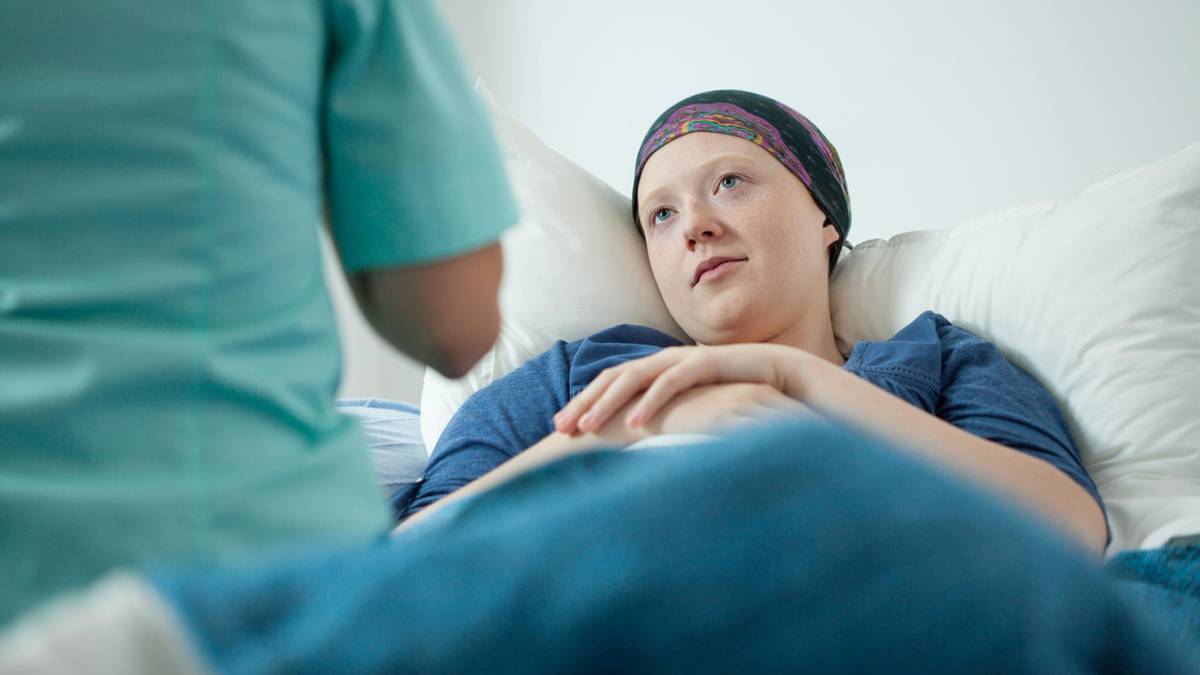Contents:
- Medical Video: Famous People With Serious Mental Disorders
- Know the effects of cancer on mental health
- 1. Anxiety
- 2. Depression
- 3. Post Traumatic Stress Disorder (PTSD)
- How do you manage the mental health of cancer patients?
Medical Video: Famous People With Serious Mental Disorders
What comes to your mind when you hear the word cancer? Yes, maybe some of you imagine things like chemotherapy to baldness. Until now, cancer is still a scourge because this disease is one of the causes of death in the world.
Being a cancer sufferer is certainly a big blow to yourself and those closest to you. This condition will usually have a major effect on mental health, especially the patient itself.
Know the effects of cancer on mental health
1. Anxiety
Anxiety is a type of fear that is usually associated with thinking about a threat or something that is worrying in the future. Usually anxiety arises because something is or has happened now.
When you or someone closest to you is detected cancer, anxiety and worries are inevitable. During the treatment process until you are declared cured, this anxiety will usually continue.
Questions will arise in your mind, do you take the right treatment steps, whether the doctor's diagnosis is right, to think about what if the cancer cells grow quickly. There are many questions in mind that will keep you in anxiety.
The following are some physical signs that usually occur in people who are affected by anxiety, namely:
- The heart beats faster than normal or irregular
- Sweating (even though the room temperature or air is not hot)
- Dizzy
- Muscles weaken or even tighten
- Breath hunting or panting
Apart from the physical impact, there are also psychological characteristics that are usually felt. Among others are:
- Hard to sleep
- Difficult to concentrate
- Easily offended
- Loss of confidence
2. Depression
Depression is a mental health disorder that makes cancer patients always depressed, hopeless, feeling guilty, inferior, losing hope or enthusiasm, and unable to concentrate.
Depression is different from feeling unhappy. Unhappy feeling is usually felt by someone only in a certain time. Depressed people are struck by feelings of anxiety, despair, negativity, and helplessness in a long time (more than 2 weeks) and prolonged.
People who are depressed usually have characteristics:
- Always feel tired and lose energy
- Prolonged sadness (it's been more than one or two months)
- Not confident
- Difficulty concentrating
- Cannot enjoy something that is usually pleasant
- Feel hopeless and helpless
- Changes in sleep patterns, for example, become difficult to sleep or just want to sleep all day
- Feeling restless all day
- Feeling guilty and inferior
- Have thoughts of hurting yourself to suicide
Living with the shadows of death or loss can cause people with cancer to experience a range of emotions such as helplessness, grief, anger, denial, and physical pain.
3. Post Traumatic Stress Disorder (PTSD)
Post Traumatic Stress Disorder (PTSD) is an overreaction of stress and a traumatic event. Panic attacks and flashbacks of personal experiences or experiences of those around you can be a trigger. For example, the fact that the closest person has cancer and his life is not helped, this can be a trigger for people with cancer to experience PTSD. PTSD is a potentially severe and long-term mental health problem.
Even the smell of medicine, intravenous tubes, and people dressed in white like doctors and nurses can trigger trauma for cancer patients.
The characteristics of people who experience PTSD include:
- Experience a stressful event in the form of a nightmare so that the patient becomes difficult (or unwilling) to sleep
- Panic attacks, especially when there are triggers that are similar to the cause of trauma
- Depression
- Bad concentration
How do you manage the mental health of cancer patients?
To avoid these three mental health problems, you need to be aware of the importance of managing mental health such as physical health. Because the mental health of patients also greatly affects the success of cancer treatment.
There are several ways that can be done to manage the mental health of cancer patients, including:
- Do relaxation and meditation. It is hoped that through meditation patients can be more calm and able to manage stress.
- Counseling. Counseling can be a powerful way to reduce the pressure faced when treating cancer. In this way the patient can share the burden of his thoughts on experts who certainly understand how to respond so that the patient becomes calmer.
- Education about cancer. Educating patients about the disease they face can be one of the ways they are done. The patient needs to know the information as clearly as possible about the illness he is suffering so that he understands how his body is at this time. This is done so that patients do not fall into confusing information that can actually make their mental health more disturbed.
- Mental support. Support from the closest people is important, but support in a group of fellow cancer patients is equally important. This group will bring together people with similar struggles. This makes the patient feel empowered, hopeful, and not alone. Some studies say that joining a community of cancer patients or survivors like this can improve quality and survival.
- Medications for depression and anxiety. Patients with high depressive and uncontrolled levels will usually be given antidepressants.
- Sports. In addition to healthy body, exercise can be an alternative for patients to reduce stress.
If you, a relative, or family member shows signs of depression or other symptoms of mental illness, or shows desire or behavior or wants to try to commit suicide, immediately call the police emergency hotline110 or the Suicide Prevention hotline(021)7256526/(021) 7257826/(021) 7221810.












